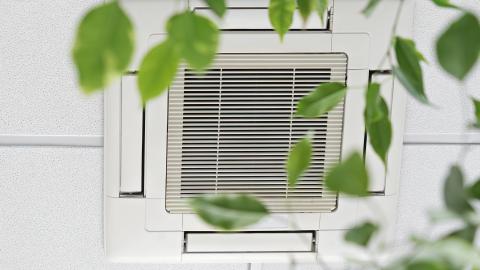E-substances regulation
The new E-Substances Regulation introduced requirements for all businesses who currently sell E-substances or intend to sell E-substances in British Columbia. Business owners must notify the Ministry of Health of their intent to sell restricted E-substances.
There are also new requirements to provide individual product reports (and manufacturing reports as applicable) at least 6 weeks before the product is first sold from the sales premises. The Notice of Intent, product reports, manufacturing reports and sales reports are required for each location of your business and only for non-therapeutic nicotine E-substances.
BC E-Substances Reporting application
The BC E-Substances Reporting (BCER) application is a new web-based portal which supports requirements of the E-Substances Regulation. The BCER is a new web-based application for all businesses which intend to sell vapour products in BC. It will allow businesses to submit their Notice of Intent to sell E-substances, product reports, manufacturing reports and sales reports on-line using a single system. This new site requires businesses to create their own account using a basic BCeID. Once all new data has been entered by a business, the new BCER will enable businesses to update business information and upload reports as necessary throughout the year. To ensure consistency in reporting requirements, templates have been created for uploading multiple location and product reports. Details and templates can be found below.
Note: the BCER is not compatible with Internet Explorer. Please use the most recent versions of Chrome, Firefox or Safari
If you completed your Notice of Intent and submitted your product and manufacturing reports using the process prior to December 9, 2020, you are not required to update your reports at this time. You will, however, be required to renew your Notice of Intent and product/manufacturing reports using the new BC E-Substances Reporting application when you renew your Notice of Intent before January 15, 2021 (as per the E-Substances Regulation). With the introduction of this new reporting system, you will be required to resubmit your product reports using this new site before January 15, 2021. You will no longer be required to email your product or manufacturing reports to the Ministry as they will be submitted through the new BCER.
Notice of intent to sell E-substances
Business owners must notify the Ministry of Health of their intent to sell restricted E-substances by submitting a Notice of Intent to sell E-Substances to the Ministry of Health. The Notice of Intent to Sell E-Substances is required for each separate sales premises for your business and for the sale of non-therapeutic nicotine E-substances. Business owners will be required to submit the following information through the BC E-Substances Reporting Application:
-
Legal name of business
-
Name under which business conducted
-
Address of sales premises from which restricted E-substances are sold
-
Phone Number for sales premises
-
Email address for sales premises
-
Webpage for sales premises (if applicable)
-
If persons under 19 years of age are permitted on the sales premises
-
Health authority in which the retail location is located
The Notice of Intent must be submitted prior to January 15 of each year that a retailer intends to continue selling restricted e-substances.
Businesses that have multiple sales premises will have the option to enter each of their locations manually or they may upload a prefilled Comma Separated Values (CSV) template to the application. The following business location template may be used and must be saved as a CSV file. Once uploaded, businesses will map the headers from their document to the headers in the online application. Businesses must map each of the headers outlined in the application (see below). You may use an existing template that you have for your business if it includes the headings outlined in the template. It must also be uploaded as a CSV.
Business Location Template (CSV, 1KB)
What is a CSV?
A Comma Separated Values (CSV) file is a plain text file that contains a list of data. Microsoft Excel files can be saved as CSV files. Using a CSV file allows retailers to upload a list of data (products, locations, etc.) to the application.
Please note that if a business location is also a retail location, business owners will have to add it as a retail location in the application.
NOTE: Business owners that fail to submit their Notice of Intent and that fail to comply with the new reporting requirements may be subject to offences under the Public Health Act.
Product reporting
As a business owner who sells or intends to sell E-substances in British Columbia, you are required to provide product information reports for each restricted E-substance you intend to sell. Product reports must be submitted at least 6 weeks prior to selling a restricted E-substance at retail.
A Product Report must include the following information for each restricted E-substance that will be sold from the sales premises.
-
The name and contact information of the manufacturer
-
The brand name and product name
-
The type of product
-
The concentration of nicotine (in mg/mL)
-
The capacity (in mLs), of either the refillable container, or the tank/cartridge to hold the E-substance
-
A list of all the ingredients in an E-substance (both the common and scientific names unless one of these names is not available from the manufacturer)
Product information must be submitted using BC E-Substances Reporting. Only one product report may be submitted for each sales premise. If you receive product from multiple manufacturers, you must combine all product reports into one CSV template for uploading.
The following Product Report CSV template may be used and must be saved as a CSV file. Once uploaded, products will map the headers from their document to the headers in the online application. Businesses must map each of the headers outlined in the application (see below). You may use an existing template that you have for your business if it includes the headings outlined in the template. It must also be uploaded as a CSV.
Product Report CSV Template (CSV, 1KB)
If any of the above information changes for a restricted E-substance product, the business owner must report this change to the Ministry within 7 days of selling the changed product.
Manufacturing Reporting
As a business owner, if a retailer formulates, packages, re-packages or prepares restricted E-substances for sale at your sales premises, you are required to provide information about those E-substances. Manufacturing reports must be submitted at least 6 weeks prior to selling the restricted E-substance at the retail location.
A Manufacturing Report must include the following information for each restricted E-substance that will be sold from the sales premises.
-
Name and contact information of the manufacturer of each ingredient
-
Both the common and scientific names of each ingredient, unless one of these names is not available from the manufacturer
Manufacturing reports must be entered manually into the database for each product that a business manufacture. The BCER application will allow you to choose an option to apply the manufacturing report to multiple locations, if applicable. The following template may be used to assist with data entry.
Sales reporting
Prior to January 15 of each year, business owners must report the vapour product sales that have occurred during a specified reporting period. For each type of vapour product sold, a business owner must report on:
-
The number of containers and cartridges sold, grouped by brand name and product name
-
The volume (in mLs) of restricted E-substance in the product
-
The flavour, if the E-substance in the product is flavoured
The sales information must be collected during the reporting period of October 1 in one year to September 30 of the following year. The sales volume data collected during this reporting period must be reported by the business owner before January 15, of every year (i.e. all business owners must report the previous year's sales figures by this date).For example, business owners must submit their first sales report by January 15, 2022 for the sales period of October 1, 2020 to September 30, 2021.
For business-related questions, including questions about the reporting requirements, please email vaping.info@gov.bc.ca.
For technical support in using the application, please email hlth.helpdesk@gov.bc.ca.
Further information on the E-Substances Regulation and information for retailers is available on the Requirements under the Public Health Act and E-Substances Regulation page.
More information
Health hazards
Under the Public Health Act, a health hazard is a thing, condition, or activity that will or is likely to endanger public health. In addition, the Public Health Act enables health hazards to be identified and addressed in regulation. A health hazard can be a defined condition, thing or activity either associated with injury or illness, or which fails to meet a certain standard relating to health, injury or illness.
Prescribing certain types of vapour products as health hazards allows public health officials to better manage the risk of harm they pose, particularly to youth. Under the E-Substances Regulation the following will now be health hazards:
E-substances that contain non-therapeutic nicotine
E-substances that do not contain nicotine, nicotine salts or cannabis
Vapour products with contain "non-therapeutic nicotine" are health hazards under the Health Hazards Regulation. Non-therapeutic nicotine refers to nicotine which is not in the form of a drug for which a prescription is required or a product, such as nicotine gum or lozenge, which is intended to be sued or consumed for tobacco reduction or cessation purposes
Under the E-Substances Regulation, the sales of these health hazards are a regulated activity. New restrictions on the sales of specific e-substances will be applied to retailers and business owners.
The Regulation introduces a new term, "restricted e-substances". This is because there are new restrictions on the type of e-substances that can be sold in B.C. and new limitations as to where the restricted e-substances can be sold.
Sales restrictions
Effective immediately
-
All E-substances that do not contain nicotine, and those that contain both nicotine and cannabis, will be prohibited for sale
-
Cannabis-only vapour products continue to be available for sale through authorized cannabis retailers
-
Retailers cannot sell any E-substances that contain only flavoured chemicals (i.e. substances that do not contain nicotine, or nicotine salts or cannabis)
-
All advertising of vapour products that can be seen, accessed, or heard by youth is prohibited. This includes places such as store windows and transit hubs
-
New business owners must notify the Ministry of Health of their intention to sell restricted E-substances at least 6 weeks prior to their first sale by using the NOI form
-
New business owners must report the products they wish to sell to the Ministry of Health at least 6 weeks prior to their first sale by submitting a product report, and a manufacturing report, if applicable
After September 15, 2020
-
All flavoured restricted E-substances – except tobacco flavour – can only be sold at age-restricted sales premises
-
Retailers selling restricted e-substances must ensure that the E-substances they sell meet the requirements with respect to labelling, packaging, volume, concentration and flavour
-
All retailers must comply with notification and reporting requirements under the E-Substances Regulations
There are two types of sales premises in which vapour products may be sold and new requirements for the types of products that each retailer-type can sell:
-
Age-restricted sales premises – where minors (those under 19 years of age) cannot are not permitted to enter and where customers must show proof of their age before buying products. Age-restricted stores include specialized vapour product stores. Tobacco flavoured E-substances and other flavoured restricted E-substances may be sold in an age-restricted sales premises. However, no retailer may sell the flavours listed in Schedule 3 of the federal Tobacco and Vapour Products Act.
-
All-ages sales premises - where minors (those under 19 years of age) can enter. These sales premises include gas stations, convenience stores, and any other retail establishment where youth are permitted. Only restricted E-substances that taste or smell of tobacco may be sold at all-ages sales premises. No other flavours are allowed. The purpose of this restriction is to limit the range of choice in vapour products in stores where youth have access.
Packaging
There will be a short transition period for existing vapour product retailers until September 15, 2020 with respect to their existing stock. Under the new E-Substances Regulation retailers must only sell E-substances that are packaged in a plain manner that is compliant with the new packaging and labelling restrictions.
Retailers may only sell restricted E-substances in plain packages, without images and which include the following information:
-
The nicotine concentration of the E-substance (which cannot be more than 20 mg/mL)
-
The total volume of the e-substance within a package, or within a container or cartridge if the package contains multiple containers or cartridges
-
A warning that states: "WARNING: nicotine is highly addictive"
E-substance packaging may include one or more of the following:
-
The name and contact information of the manufacturer
-
The brand name and product name
-
The type of product (e.g. prepackaged cartridge/pod, pre-filled vape pen, e-liquid in a bottle)














